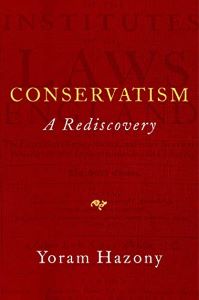The Trudeau government has introduced legislation that, if passed, will place Canada at the forefront of efforts to control, among other items, the promotion of hate online. Unlike previous legislation which merely brought the internet into the regulatory framework that already exists for terrestrial and cable broadcasters, The Online Harm Act promises to fully embrace censorship of online content, giving government bureaucrats the authority to determine what is or is not hate speech, and empowering them to prosecute offenders.
As a Jew, I am acutely aware of the proliferation of material promoting hate online. Although I have rarely been the direct target of anyone’s religiously motivated enmity (I receive more hate-filled communications as a conservative than I do as a Jew – but that is another story.) hardly a day goes by that I am spared the unpleasant task of explaining anti-Semitic canards forwarded to me by friends who either seek my reaction or just want to inform me of what they are being exposed to.
No doubt this material has a dangerous effect on young and/or impressionable minds. But it also as a Jew that I find myself deeply unnerved by the prospect of government combatting hate by further regulating online content, even the most odious and potentially harmful.
One of the great unlearned lessons of history is how the National Socialists in Germany used mass media to their advantage in the 1930s. It is debatable how effective the promotion of anti-Semitism was in helping them achieve power, but it is certain that silencing voices of opposition was critical to their consolidation and retention of that power once obtained.
Proponents of anti-hate laws trust that democratic processes and judicial oversight are sufficient safeguards against abuse of such power. What they fail to appreciate is just how quickly what is acceptable today can become unacceptable – even criminal – tomorrow, or how a government in possession of the requisite powers can shape that transformation. We live in a time when merely questioning the morality of administering puberty-blocking chemicals to pre-pubescent children – something that would have been unthinkable only a few short years ago – is condemned in some circles as promoting hate. In such a volatile and politically charged environment, do we really want to construct mechanisms whereby the expression of thought is subjected to the scrutiny of government agents?
I do not deny that the promotion of hate on the internet is a problem. The question we need to ask ourselves, however, is not how to control the promotion of hate, but why are people so easily influenced by such self-evidently foolish ideas? I believe that the answer to this lies in our society’s wholesale abandonment of the moral consensus that, at one time, both defined and deterred improper behaviour, regardless of the motivation.
I am reminded of the campaign to strengthen laws against corrupt business practices in response to the Enron Scandal in 2001, as if the reason so many participated in cooking the books at Enron was because they thought they could “get away with it.” Few at the time asked why so many lacked the character to abstain from acting corruptly even if they could “get away with it.” The answer was that these individuals had lost the innate ability to recognize wrongdoing regardless of its status in law, and the integrity to decline to take part in it simply because it was wrong.
The same can be said in response to the rise in hate-motivated activity in our society. What we need are not stronger laws or better policing of the internet – we need a return to the simple but profoundly important principle of “love they neighbour as thyself” that used to be at the heart of our society’s Judeo-Christian heritage. It is the denigration and rejection of that heritage, and subsequent abandonment of its culture, that has left us where we are today, profoundly dissatisfied with the condition of our society, and searching for answers that unscrupulous politicians are only too happy to provide… especially when those answers help advance their own ideological agenda.
Laws can be enacted, and behaviour coerced, but good character can only be built over time, and only in an atmosphere where such traits as honesty, decency and self-discipline are respected and modelled. Unfortunately, you won’t find such an atmosphere online, in our movie houses, or even in the halls of Parliament. Where you will find it is in the churches that still teach and practice biblical (not woke) Christianity.
So what do I advise as a more effective response to hate on the internet and all the other harms associated with bad behaviour online? Stay away from social media and find yourself a church that teaches and practices real Christianity.
Or synagogue…
Dear Reader,
I don't charge for my content, but...
I do accept voluntary contributions from readers like you who appreciate insightful analysis and value intelligent debate. If you like what you are reading, please consider making a small one-time or monthly contribution by clicking here.


 Conservatism: A Rediscovery explains how Anglo-American conservatism became a distinctive alternative to divine-right monarchy, Puritan theocracy, and liberal revolution. After tracing the tradition from the Wars of the Roses to Burke and across the Atlantic to the American Federalists and Lincoln, Hazony describes the rise and fall of Enlightenment liberalism after World War II and the present-day debates between neoconservatives and national conservatives over how to respond to liberalism and the woke left.
Conservatism: A Rediscovery explains how Anglo-American conservatism became a distinctive alternative to divine-right monarchy, Puritan theocracy, and liberal revolution. After tracing the tradition from the Wars of the Roses to Burke and across the Atlantic to the American Federalists and Lincoln, Hazony describes the rise and fall of Enlightenment liberalism after World War II and the present-day debates between neoconservatives and national conservatives over how to respond to liberalism and the woke left.